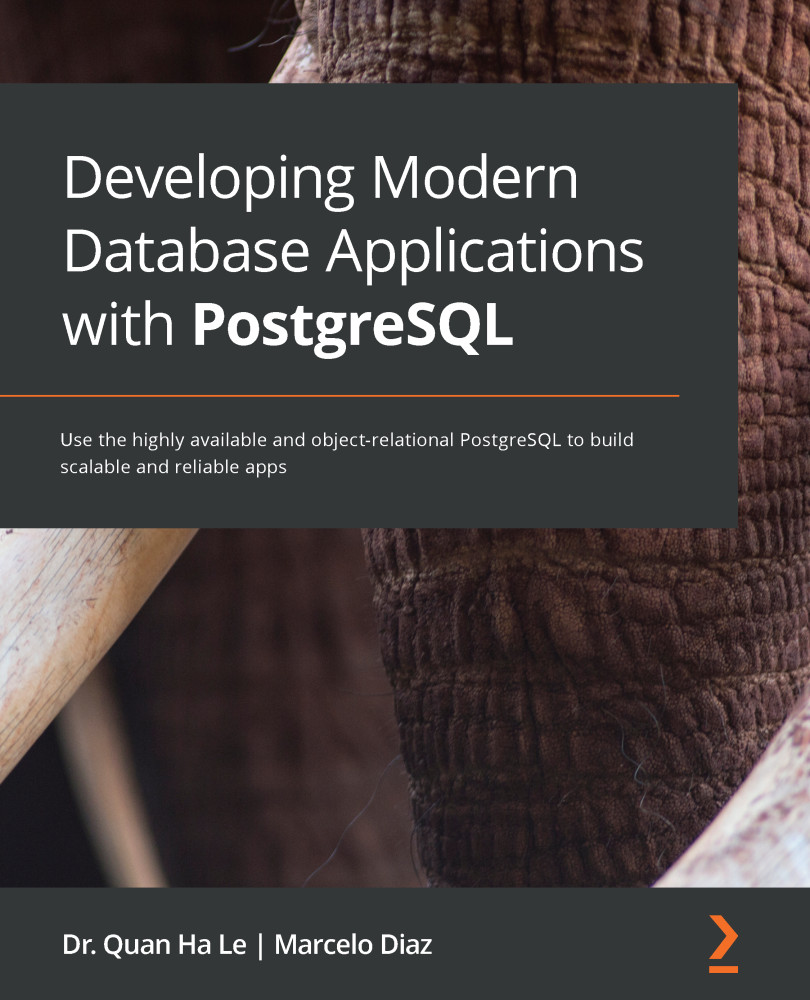Many Python developers prefer to use PostgreSQL for their applications. Therefore, Python's sample code for using PostgreSQL has been better documented with typical usage scenarios. Both PostgreSQL and Python are popular because of the following:
- PostgreSQL's open source license is free, so developers can easily operate as many databases as they wish without any cost.
- We can now find developers who have PostgreSQL experience more easily than other relational databases.
- Django is a Python Model-View-Template (MVT) web framework, which defines itself as a "batteries included" web framework.
- Django is simple and robust, and it is one of the most famous frameworks used by websites such as Instagram, YouTube, Google, and NASA.
The following features are emphasized by developers of Python (Django):
- PostgreSQL's connection with Python: Python developers connect to PostgreSQL databases via the psycopg2 database driver and then use an object-relational mapper (ORM) to turn PostgreSQL tables into objects; finally, these objects can be utilized in their Python applications.
- A "batteries included" philosophy: The philosophy of "batteries included" means that Python provides plenty of functionalities, including magical ORM, multisite and multi-language support, MVT layouts, RSS and Atom feeds, AJAX support, free APIs, URL routing, easy database migrations, session handling, HTTP libraries and templating libraries, code layouts, and a default admin section.
- Good tutorials: Django has very good documentation that developers can quickly update with the latest information, such as technical requirements and quick-start details, detailed release notes, backward-incompatible changes, and online topics on Python development.
- The Django admin interface: The admin interface is one of the key advantages of Django. From a few simple lines of Python code, developers can get a good featured admin interface.
- Built-in templates: One of the advantages of Django is its robust built-in template system that facilitates the process of application development.
- Good scalability: Django can handle heavy traffic and the mobile app usage of many users; it maximizes scalability while minimizing web hosting costs. Django can also execute fine for a large number of hosts while maintaining a relatively cheap or even free hosting price.
- Best web application security: Django has protection against SQL injections, XSS and CSRF attacks, and clickjacking, as it hides the source code of websites.


